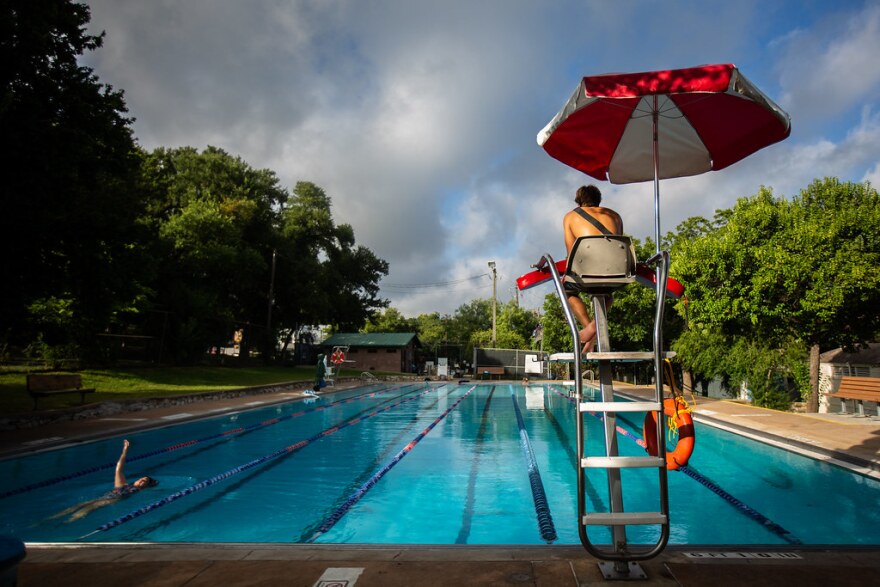Austin’s Parks and Recreation Department needs at least 750 lifeguards to open all 34 of its pools for the summer — but currently it has less than a third of that.
Austin operates five year-round pools, including Barton Springs and Big Stacy, and 29 seasonal pools, each of which were supposed to open June 6. But due to the lifeguard shortage, Parks and Recreation is planning a phased opening of seasonal pools to “equitably distribute its workforce,” according to a PARD spokesperson.
Though a phased opening isn't unusual for Austin, a PARD spokesperson said the lifeguard shortage is a national problem this year. The American Lifeguard Association reports that at least one-third of public pools in the U.S. risk being shut down or changing hours to accommodate this summer's staff shortage.
Currently, PARD has 234 lifeguards. If there are at least 375 lifeguards by the June deadline, it will open 10 seasonal pools: Balcones, Dick Nichols, Dove Springs, Garrison, Govalle, Montopolis, Northwest, Rosewood, Shipe and Westenfield.
As the department hires additional lifeguards, it plans to open more pools.
Aaron Levine, PARD’s aquatics supervisor, said he’s confident they will have enough lifeguards to open the first 10 pools.
“We’re definitely starting to see college kids come back [and] high school kids get their training and start to think about summer,” Levine said. “This year is just like every other year. We see a big uptick in our classes come May.”
Levine said about 120 applicants are already enrolled in several sessions of the required lifeguard certification course, potentially bringing the number of lifeguards ready to work on June 6 to about 354.
If the department falls short of the 375 lifeguard threshold, those first 10 pools will likely still be opened, but with more limited hours.
To bring in more applicants, staff from the aquatics division has been actively recruiting at high schools, colleges, job fairs and other local events, according to a PARD spokesperson.
The department also increased lifeguard wages to at least $16 an hour. It is also offering up to $1,250 in bonuses ($500 for being certified and ready to work by June 6; $500 for working an average of 30 hours per week through the summer; and $250 for advanced certification permitting lifeguards to teach swim lessons or work in open water). Lifeguards also get paid sick leave and free bus passes.
In late March, however, the PARD Board had recommended that in addition to bonuses, lifeguards be paid at least $22 an hour to keep city pools staffed.
At a City Council meeting last Thursday, Barton Springs Pool lifeguard Scott Cobb said he was disappointed Austin didn’t follow the recommendation and expected it would result in a shortage of about 300 lifeguards.
“You can still save the summer for those people of Austin who want to swim [by] offering a $22 living wage, holiday pay, [and] full benefits [to lifeguards],” Cobb said. “And that way you would be able to open the pools fully.”
During that same meeting, the City Council voted to waive or reimburse for the training fee applicants had to pay to take the required 36-hour in-person lifeguard certification course. The fee was typically $20. Returning lifeguards were required to take a 16-hour recertification course, but were not charged for the class.
That course requires applicants to first prove they can perform basic skills, like being able to swim 150 yards freestyle; tread water for a minute; and retrieve a 10-pound brick from up to 14 feet under water. Then they are taught lifeguarding skills like how to closely watch people at the pool and respond to first aid emergencies.
“We have to go through 40 hours of unpaid training in order to be a lifeguard for the City of Austin,” Cobb said. “I do not know of any other job in the city where you have to go through unpaid training for 40 hours to work.”












